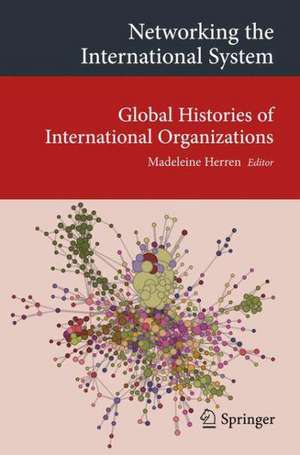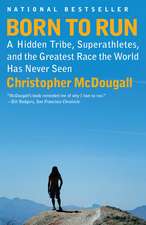Networking the International System: Global Histories of International Organizations: Transcultural Research – Heidelberg Studies on Asia and Europe in a Global Context
Editat de Madeleine Herrenen Limba Engleză Paperback – 25 iun 2014
Din seria Transcultural Research – Heidelberg Studies on Asia and Europe in a Global Context
- 18%
 Preț: 929.69 lei
Preț: 929.69 lei - 18%
 Preț: 1191.79 lei
Preț: 1191.79 lei - 15%
 Preț: 624.71 lei
Preț: 624.71 lei - 15%
 Preț: 623.93 lei
Preț: 623.93 lei - 18%
 Preț: 920.42 lei
Preț: 920.42 lei - 15%
 Preț: 635.13 lei
Preț: 635.13 lei - 15%
 Preț: 626.33 lei
Preț: 626.33 lei - 15%
 Preț: 630.33 lei
Preț: 630.33 lei - 15%
 Preț: 627.61 lei
Preț: 627.61 lei - 18%
 Preț: 871.72 lei
Preț: 871.72 lei - 15%
 Preț: 636.39 lei
Preț: 636.39 lei -
 Preț: 378.08 lei
Preț: 378.08 lei - 15%
 Preț: 625.20 lei
Preț: 625.20 lei -
 Preț: 379.22 lei
Preț: 379.22 lei -
 Preț: 379.96 lei
Preț: 379.96 lei -
 Preț: 363.52 lei
Preț: 363.52 lei - 18%
 Preț: 768.74 lei
Preț: 768.74 lei - 15%
 Preț: 631.14 lei
Preț: 631.14 lei - 18%
 Preț: 878.98 lei
Preț: 878.98 lei - 18%
 Preț: 763.79 lei
Preț: 763.79 lei - 15%
 Preț: 572.30 lei
Preț: 572.30 lei - 15%
 Preț: 576.47 lei
Preț: 576.47 lei
Preț: 623.45 lei
Preț vechi: 733.47 lei
-15% Nou
Puncte Express: 935
Preț estimativ în valută:
119.35€ • 124.06$ • 98.96£
119.35€ • 124.06$ • 98.96£
Carte tipărită la comandă
Livrare economică 06-20 februarie 25
Preluare comenzi: 021 569.72.76
Specificații
ISBN-13: 9783319042107
ISBN-10: 3319042106
Pagini: 212
Ilustrații: VI, 205 p. 9 illus.
Dimensiuni: 155 x 235 x 17 mm
Greutate: 0.3 kg
Ediția:2014
Editura: Springer International Publishing
Colecția Springer
Seria Transcultural Research – Heidelberg Studies on Asia and Europe in a Global Context
Locul publicării:Cham, Switzerland
ISBN-10: 3319042106
Pagini: 212
Ilustrații: VI, 205 p. 9 illus.
Dimensiuni: 155 x 235 x 17 mm
Greutate: 0.3 kg
Ediția:2014
Editura: Springer International Publishing
Colecția Springer
Seria Transcultural Research – Heidelberg Studies on Asia and Europe in a Global Context
Locul publicării:Cham, Switzerland
Public țintă
ResearchCuprins
Introduction.- Towards a Global History of International Organization.- Part 1: Constructing the Memory of International Organizations.- From the League of Nations to the United Nations: The Continuing Preservation and Development of the Geneva Archives.- Matsuoka Yosuke’s Miscalculation at Geneva: A Possible Reconsideration Using JACAR Data.- Part 2: Eurocentrism and Science Policy.- On the Concept of International Organization: Centralization, Hegemonism and Constitutionalism.- Activities and Discourses on International Cultural Relations in Modern Japan: The Making of KBS (Kokusai Bunka Shinko Kai), 1934–53.- International Control of Epidemic Diseases from a Historical and Cultural Perspective.- Part 3: International Organization as a Forum: Turning Local Concerns into Global Issues.- Sino-Japanese Controversies over the Textbook Problem and the League of Nations.- Beyond Empires’ Science: Inter-Imperial Pacific Science Network in the 1920s.- Networking through the Y: The Role of YMCA in China’s Search for New National Identity and Internationalization.- Part 4: Culture and Standardization: The Multifunctional and Contradictory Use of International Organizations.- Global Governance: From Organizations to Networks or Not?.- New Capitalism, UNESCO and the Re-enchantment of Culture.- Popular Culture and International Cooperation in the 1930s/CIAP and the League of Nations.- Avenues and Confines of Globalizing the Past: UNESCO’s International Commission for a “Scientific and Cultural History of Mankind” (1952–1969).
Textul de pe ultima copertă
The book critically investigates the local impact of international organizations beyond a Western rationale and aims to overcome Eurocentric patterns of analysis. Considering Asian and Western examples, the contributions originate from different disciplines and study areas and discuss a global approach, which has been a blind spot in scholarly research on international organizations until now. Using the 1930s as a historical reference, the contributions question role of international organizations during conflicts, war, and crises, gaining insights into their function as peacekeeping forces in the 21st century. While chapter one discusses the historicity of international organizations and the availability of sources, the second chapter deliberates on Eurocentrism and science policy, considering the converging of newly created epistemic communities and old diplomatic elites. Chapter 3 sheds light on international organizations as platforms, expanding the field of research from the diversity of organizations to the patterns of global governance. The final chapter turns to the question of how international organizations invented and introduced new fields of action, pointing to the antithetic role of standardization, the preservation of cultural heritage and the difficulties in reaching a non-Western approach.
Caracteristici
Interference between Eurocentrism and global governance cover a blind spot in scholarly research Non-Western international organizations cover an academic void Historical reactions of international organizations to crises and war help us to understand their peacekeeping functions in the 21st century Includes supplementary material: sn.pub/extras














